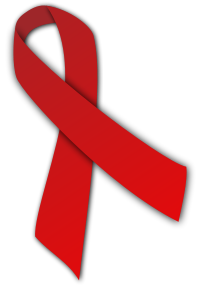
Photo from wikipedia
Persons living with human immunodeficiency virus (PLHIV) are at increased risk of atherosclerotic cardiovascular disease (ASCVD). In spite of this, uptake of evidence-based clinical interventions for ASCVD risk reduction in… Click to show full abstract
Persons living with human immunodeficiency virus (PLHIV) are at increased risk of atherosclerotic cardiovascular disease (ASCVD). In spite of this, uptake of evidence-based clinical interventions for ASCVD risk reduction in the HIV clinic setting is sub-optimal. METHODS: EXTRA-CVD is a 12-month randomized clinical effectiveness trial that will assess the efficacy of a multi-component nurse-led intervention in reducing ASCVD risk among PLHIV. Three hundred high ASCVD risk PLHIV across three sites will be randomized 1:1 to usual care with generic prevention education or the study intervention. The study intervention will consist of four evidence-based components: (1) nurse-led care coordination, (2) nurse-managed medication protocols and adherence support (3) home BP monitoring, and (4) electronic health records support tools. The primary outcome will be change in systolic blood pressure and secondary outcome will be change in non-HDL cholesterol over the course of the intervention. Tertiary outcomes will include change in the proportion of participants in the following extended cascade categories: (1) appropriately diagnosed with hypertension and hyperlipidemia (2) appropriately managed; (3) at treatment goal (systolic blood pressure <130 mm Hg and non-HDL cholesterol < National Lipid Association targets). CONCLUSIONS: The EXTRA-CVD trial will provide evidence appraising the potential impact of nurse-led interventions in reducing ASCVD risk among PLHIV, an essential extension of the HIV care continuum beyond HIV viral suppression.
Journal Title: American heart journal
Year Published: 2019
Link to full text (if available)
Share on Social Media: Sign Up to like & get
recommendations!